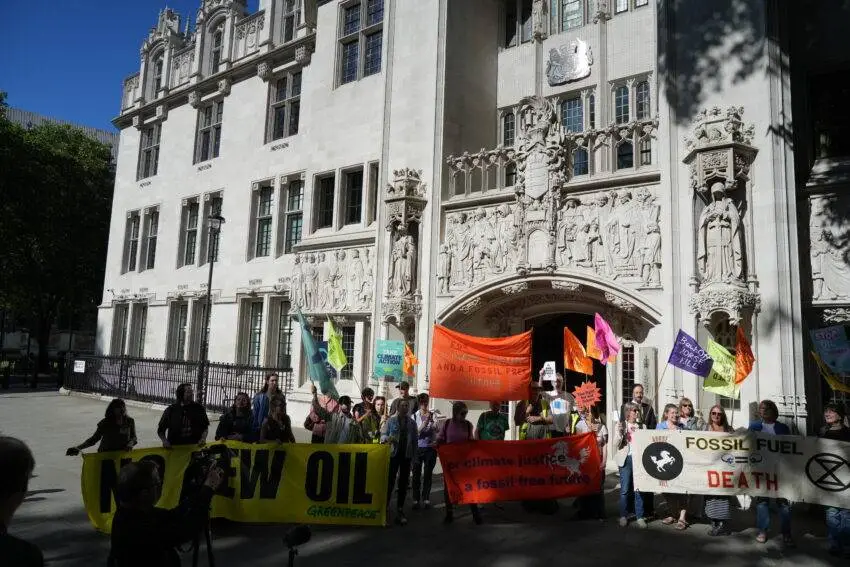The UK Supreme Court has delivered a landmark ruling. This decision requires full consideration of the climate impact of new oil wells.
This could reshape the future for UK fossil fuel projects, ensuring that emissions are considered right from the start.
Background on the Case
Historically, UK planning law only required consideration of environmental impacts during the construction phase of oil wells. The emissions from the oil’s usage were not evaluated.
This long-standing precedent was upended by a case brought against Surrey County Council by Sarah Finch on behalf of environmental campaigners. The challenge focused on the downstream emissions from oil production.
The Supreme Court’s Decision
The Supreme Court did not demand the outright rejection of Surrey County Council’s proposal for new oil wells. However, it ruled that the council should have considered the downstream emissions.
This ruling sets an important precedent for future projects. Companies will now need to account for these emissions.
Sarah Finch, representing the Weald Action Group, expressed her delight. “I am absolutely over the moon to have won this important case,” she told her supporters.
Implications for the Horse Hill Oil Well
The ruling centres on the Horse Hill oil well in Surrey. In 2019, this project received planning permission to expand operations.
Finch argued that the Environmental Impact Assessment should have included the greenhouse gas emissions from burning the oil.
The Supreme Court agreed with Finch by a three-to-two majority. Lord Leggatt remarked that it was “inevitable” that the oil would be burned, making the emissions a direct outcome of the project.
Projected Environmental Impact
The six wells at Horse Hill are set to produce 3.3 million tonnes of crude oil over the next 20 years.
Friends of the Earth estimated that burning this oil would result in over 10 million tonnes of CO2 emissions.
Industry Reactions
Stephen Sanderson, CEO of UK Oil & Gas PLC, found the court’s ruling perplexing.
Despite this, he noted that the company has been shifting its focus towards hydrogen storage in recent years.
UK Oil & Gas PLC now plans to work with Surrey County Council to revise its planning application, ensuring future production remains below the threshold that requires an environmental assessment.
Impact on Future Projects
Campaigners believe this ruling could influence other UK projects. This includes the Rosebank oil field and the proposed coal mine in Whitehaven, Cumbria.
“Today’s groundbreaking ruling is a heavy blow for fossil fuel lobbyists,” stated the Weald Action Group. They stressed the UK’s struggle to meet its carbon reduction targets.
Given that UK environmental assessment laws partly stem from European legislation, this ruling might also have international implications.
The Long Legal Battle
Finch’s victory concludes a five-year legal battle. This campaign was backed by groups such as Friends of the Earth and Greenpeace.
Although Finch’s initial challenge was dismissed by the High Court, the Appeal Court returned a split decision in 2021. This led to the Supreme Court hearing.
Friends of the Earth lawyer Katie de Kauwe called the ruling “a watershed moment”. She praised the perseverance of Finch and the Weald Action Group.
Significance of the Ruling
“This historic ruling ensures that end-use emissions must now be considered in planning permissions for fossil fuel projects,” said de Kauwe.
Sarah Finch celebrated, stating, “This is a welcome step towards a safer, fairer future.”
The UK Supreme Court ruling marks a pivotal moment. New fossil fuel projects must now account for their full climate impact.
This decision could reshape the landscape for UK oil and gas projects, steering them towards greater environmental responsibility.


